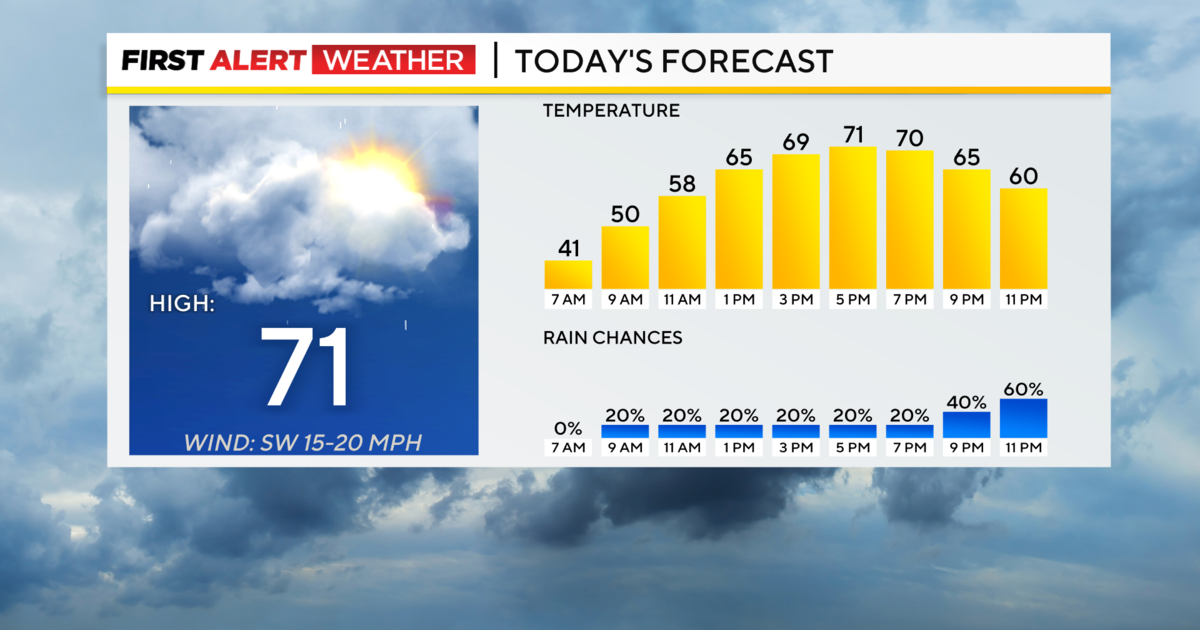Although Social Security Recipients Get Hike In Benefits, Experts Say It's Not Enough
PITTSBURGH (KDKA) -- Come January, Social Security recipients are getting a big boost in their monthly checks, but citizen advocacy groups say many seniors are falling behind.
The good news is that Social Security benefits are going up 5.9 percent, the largest increase in 40 years for 70 million people. That's a hike of about $92 a month for the average Social Security recipient.
The bad news is that it's not enough.
"While it's welcome, too many people receiving Social Security are not treading water. They're going underwater," Nancy Altman, one of the nation's top Social Security experts and co-founder of Social Security Works, told KDKA money editor Jon Delano.
Altman said the cost-of-living formula used by the government doesn't reflect higher health care costs for seniors. So each year, recipients fall further behind.
"When you use the cost-of-living adjustment for workers, you're under measuring and that's why they've been eroding over time," Altman said.
The other problem is that the benefits are low, to begin with, below international standards, Altman said.
"The base benefit by virtually any standard is inadequate in terms of absolute amount, about $1,500 a month average, which means an awful lot of people receive less than that," Altman said.
"In terms of the replacement of your wages while you were working to maintain your standard of living, 30 percent or 40 percent on average, again not adequate by international standards," Altman added.
Many senior advocates said American retirees need benefits closer to 80 percent of their pre-retirement wages for a decent retirement. With pensions disappearing for many and 401(k)s inadequate, American seniors have fallen behind.
"A growing share of Americans are depending on Social Security for all or most of their income in retirement," said Daniel Adcock, director of government relations and policy for the National Committee to Preserve Social Security and Medicare.
"We used to think of retirement as a three-legged stool. But for a lot of Americans, it's become a one-legged pedestal with Social Security being the only source," Adcock added.
The other big question asked frequently by current workers is will Social Security be there for them when they retire? Policy experts say Social security will be there, but there are challenges ahead.
"The last Social Security Trustees report found the Social Security Trust Fund runs out of reserves in 2034, so something needs to be done about that," Adcock said.
That's right. In the year 2034, Social Security benefits paid out will exceed the Social Security taxes that are coming in. In order to keep this pay-as-you-go system afloat, benefits that year would have to be cut by 24 percent.
But that doesn't have to happen.
"We're the wealthiest country in the world at the wealthiest moment in our history. If we want to provide 100 percent of those benefits or even more for our children, grandchildren, and their children, we can do it," Altman said.
No politician, Republican or Democrat, wants to be blamed for denying you, your parents, and grandparents their full Social Security benefits.
"Starting next week, they're going to be several bills introduced that both expand benefits and restore Social Security to long-range balance," Altman said.
The challenge is finding a solution. One idea is to lift the cap on FICA Social Security taxes. Right now, everyone pays 6.2 percent up to $142,000 a year in income.
"Ninety-six percent of American workers earn under that amount so they pay all year long. Every paycheck that money is taken out. But we joke that Bill Gates probably stops paying by lunchtime on Jan. 1," Altman said.
Scrapping the cap so that Social Security taxes are paid on all earned income comes close to solving the problem. Other solutions include raising the full retirement age to 68 or 70 or cutting benefits for very wealthy retirees who don't need a Social Security check.
The political problem, says Adcock, "There's a huge gap between where Democrats and Republicans are on this."
The last bipartisan 'fix' for Social Security occurred in 1983 when President Ronald Reagan and House Speaker Tip O'Neill cut a deal to raise FICA Social Security taxes, cut some benefits, and raise the retirement to its current level.
Today's leaders have about a decade to figure this all out.



